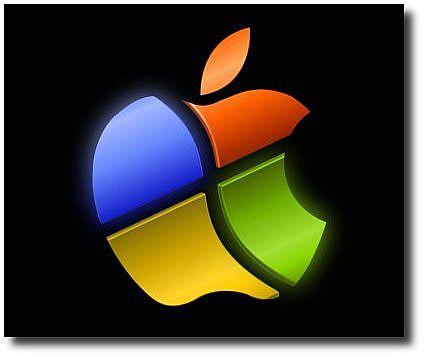
A good friend pointed me to a New York Times opinion piece for Monday, August 26, 2013 by noted economist Paul Krugman entitled: The Decline of E-Empires. The catalyst for the article was the forthcoming resignation of Steve Ballmer, CEO of Microsoft. The scope of the article remarked on the long running rivalry between Bill Gates (Microsoft) and Steve Jobs (Apple). Though neither icon holds the helm of either company today, Paul Krugman presents a lesson in how rigid monopolies eventually lose the ability to adapt to changing technologies.
I have always liked reading Mr. Krugman. My take this time; Paul oversimplifies the dynamics of technology. Yes, from a dollars and cents aggregate (how economists view things), today Microsoft is down and Apple is up, which is opposite how the war played out in the late twentieth century.
Barbarians at the gate aside, I see “Microsoft vs Apple” as more of a question of purpose. Microsoft functions better as a boring yet highly efficient work tool. While Apple has mutated from an artsy-fartsy graphic-design machine, into the technical choice for personal-time activities — music, movies and games. It seems less a black or white choice between companies, than a reflection on how and where Americans spend their disposable income. With lots of time and money, the US has become the opulent purveyor of leisurely pursuit and Apple chose to be king of this domain, while Microsoft maintained the lions-share of the personal computer business.
BTW: the transformation of Apple from geeky to sexy, started with the iPod (a music player), which improved upon the Sony Walkman (itself a game-changer) and earned Apple bushels of $$. The technical zinger capitalized upon by Apple was touch screen display. The consumer market ate up touchy-feely. It introduced a simplified user interface, much as mouse-based desktop PCs revolutionized in its day, previously controlled menu-driven keyboard clicks. One big problem: touch screen seems less handy creating detailed documentation for print-based work – a necessity in the business world.
Apple’s dominance will continue only with additional innovation. Apple iPods, iPhones and iPads all sell well because of a masterful touch screen interface. Android devices – also employ touch screen control, with open source design and naturally occurring, continuous minor innovation, and these Google-inspired devices have largely overtaken Apple in the hand-held field at a reduced price point.
Agreeing with Paul Krugman about the rigidity of monopolies; the surge by Android (and possibly Windows Phone), is largely due to Apple insisting on controlling the entirety of the production cycle (hardware, software and service) — a business plan which is a repeat of the PC vs McIntosh wars, which Apple famously lost, in my opinion. Apple demands top dollar for their innovations, but this past year has not been that sort of year. Apple’s stock price is down 45% from a year ago, when they were the largest capitalized company in the world.
There is an upsurge in other touch screen devices, and it would be foolish to assume that the current US leader in leisure time products will necessarily rule business grade products. That is not the case presently, nor does it look to be the case going forward.
Please note, the demise of Ballmer is not the passing of Microsoft. Ballmer is out because he failed to properly address the consumer branch of the company with enough flair and sufficient profit. Business is still good at big blue and could be coming back with the introduction of Windows 8, a touch-aware operating system. Still, it is too little, too late for Steve Ballmer.
Tags: big business, public opinion, Technology